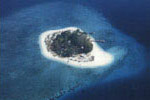
|
|

|
|
|
Many scholars has been devoted their studies to Indonesian pesantren and its features. Nevertheless, little attention given to pesantrens those are spreading in outside Java, especially both South Sulawesi and Kalimantan. It is true that the Indonesian pesantren has some similar features. Nevertheless, it seem to be important to emphasize that in the late 20th century, there were growing up some new pesantrens with its special features such as the Pesantren Hidayarullah in Balikpapan, East Kalimantan, the Pesantren Darut Tauhid in Bandung, and the Pesantren al-Zaitun in Indramayu, both in West Java. This paper is dealing with the Pesantren Hidayatullah its role in the context of dissemination of Muslim knowledge and dakwah. As mentioned, the Hidayatullah considered to have a special character in compare to other pesantren. Unlike other pesantren, it was to combined education and dakwah as a manner to established ummah in which the Islamic shari?ah (Islamic law) work as the only one guidance. To implement its aim, the pesantren encourage its pupils (santri) to established same institution in other areas. Thus, it was not surprised that the Hidayatullah has many branch spreading in many Indonesian region. The Pesantren Hidayatullah is located at Gunung Tambak, Tritip village, Balikpapan district, East Kalimantan. Its established in 1971 by number of prominent figures led by Abdullah Said, originally come from South Sulawesi. He had been the leader of the group and its pesantren until his death in 1998. He went to Jogyakarta in 1960 when DI/TII rebellion in South Sulawesi became weak. Someone point out that his journey was force by his relation with Kahar Mudzakar, the leader of rebellion. What is the reason behind the establishment of the Hidayatullah? This question is important to find out the Islamic ideology behind the establishment of the Hidayatullah. The founder said that the role of Hidayatullah is like the ?Hira Cave? in which prophet Muhammad was hide from infidel (kafir) in his journey to Madina. It is place to stay temporary in which some people studies and prepare to struggle against ?modern infidel? (jahiliyyah modern). Like prophet Muhammad, in the end they are going to establish ?Muslim communities? in which?as was cited?the Shari?ah (Islamic law) work as the only one guidance. Thus, the Hidayatullah is not merely Islamic educational institution. The Islamic ideology behind the establishment indicated that the Hidayatullah is provides a particular understanding on Islamic education. The goals of Islamic education were not only to produce good people, skilled communicators, well-informed people, and efficient workers, but also fighter to establish Islamic law in Indonesia.
The analysis of this paper are based on deep interview and consult other resource such as books written by its founder and the Suara Hidayatullah periodical. Using historical, sociological and political approach, this paper is going to describe any development, change, and continuity of the Hidayatullah in relation to implementing its mission in Indonesia context.
|
Jointly organized by IIAS the Netherlands and The State Institute of Islamic Studies, Makassar